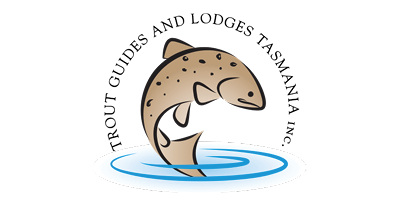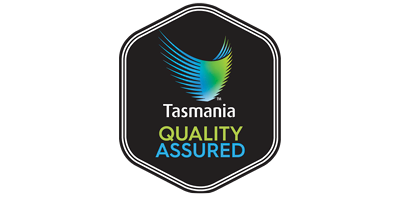Sun setting over the majestic South Esk river.
People stand with hands thrust in jacket pockets, faces turned from the cutting wind, watching quietly as the water surges on, seemingly unending, brown and clotted as the flotsam of our modern world is dragged under. Currents swirl and suck while this beautiful, heaving mass rips apart the banks and riverbed that we hope can hold. Every time I watch this event the thought comes into my mind that this particular rain may have only weeks ago been flowing through Varanasi, carrying countless souls on their final journey down the Ganges, or simply evaporation from a Japanese Marble trout stream. Whichever it may be, the miracle and power of this is something to behold.
This same river that I wade in summer could not look more different, knee deep with endless beds of swaying weed, a gentle current always drawing back your fly line, fish happy enough to attack poor fly choices, and a landscape dry and blistered by the sun. The tall eucalypts seem to crackle in the heat, and light shafts pierce the foliage. All around, life seems to be operating in the extreme as bugs hatch and swallows hunt for takeaway, and gentle swirls in the current so soft they could have been done by a child carrying a curled leaf or the occasional spent mayfly through the inspection path of a waiting fish. How could we not be enamoured?
The intimacy of a safe haven, a link that runs so much deeper than a line of sight, rivers seem to carry the very essence of humanity. They transport the planet’s most precious resource, ebb and flow at their own whim, and although we sometimes try to steer them, success is generally short-lived they simply forge their own path. So much unharnessed power that has the ability to comfort, console and inspire. Limitless words pour forth in admiration yet we seem unable to protect them, to give them the love they so deserve. Tasmania is no different than anywhere else; a growing population, pollution, and changes in farming practices keep applying distress, but thankfully the wonderful place where we live is capable of incredible things that offer hope for the future. I do not long for a time that has passed, for the headwaters and rivers that I fish are still some of the cleanest on Earth; it simply means that we have to work harder to protect them.
Fly fishing is a strangely wonderful life choice. It seems to take forever to learn the simplest of casts, and then one day you turn around and can’t even remember not knowing, as muscle memory and years of practice sink in. How good is it that these early years are mostly spent on rivers, so many days of quiet wandering helping us to subconsciously reconnect with the natural world as we push against the rivers current? Fancy new waders and an overstocked fly vest help to convince us in the early years that we are on the right path, though only time will correct this decision as simplicity and skill fuse.
Rivers always seem to wait for us. Thousands of years bare themselves before us as we move among the banks’ quiet sanctuary. It feels kind of surreal as the never-ending flow drifts past, weaving a kind of magic as most of the clutter of our lives are pulled from us, an unseen string drawing us closer, letting us grab and fumble with our own complex view of the world yet all the time showing us a simpler, more complete perspective. To be able to wade through these places, casting feather and fur copies of locally grown bugs, is to the fly fisherman possibly the most natural place in the world to be. All things need to be tempered, and perhaps that is why the modern fisherman is so aware of the balance of all of this. The world that is operating outside of the river is so broken and challenging that any time spent fishing is like a gift, a chance given to be a part of something that makes us whole, the fisherman we always dreamed of being.
“A life can be spent here and it would not be wasted.”
The fishing in those early years can have some very difficult periods. All the books and sweetly uttered words disappear as we struggle to connect the dots and make some sense of all that we have tried to learn. Branches and trees seem to be the most popular place for our flies to reside as bad casts and poor judgement leave us wondering what the hell we are doing here. Seeing a fish has not even moved onto the radar as moss covered rocks and tricky currents keep us struggling to stay upright, let alone look for a fish. The river takes all this in and yet shows us nothing. Time passes and a kind of intimacy grows as we explore and start to look past just the fishing, as birds, animals, trees, and plants take a far more important part of our life as the landscape starts to open up. Cold, rain-driven days are spent huddled under streamside scrub as the dimpled surface sweeps on. A quietness has entered the equation, the ability to sit and just watch has settled upon us. Then, the serenity is shattered as a good fish surges upstream and, without a look sideways, we’re thrashing the water to foam and all good intentions drift off with the current. Ah, the life of the beginner.
Slowly skill starts to build, and along with that our catch rate starts to increase. It sometimes still surprises us as the fly is quietly sucked down and instinct makes us strike before our brain has even engaged. That sudden weight never loses its thrill as the battle begins, all this with a backdrop that makes you feel that this is your river, a special place that may have shown you nothing until you opened your arms first. The South Esk in the North of Tasmania is this for me, a place so beautiful that it can still make me catch my breath as each turn reveals another aspect and the hope of spotting another fish. So many friendships have been formed as permission for access introduces us to people who make their living on the banks of these rivers, some happy, some not, that’s just the way the river rolls. People tell me that the dying talk of a few things; family, home and the land they come from. The rivers and landscape of Tasmania have become that for me, children born here, a life of toil and love have confirmed all of this and makes me sure that this is true: you may not have been born here, yet you choose to die here. Perhaps that is the essence of home.
Rivers change us, help to make us look at the world anew, see things a little bit brighter, a little more possible. Unlike a lot of other things in life, most are not going anywhere; if we show them a little love, perhaps they can last forever. The big sky country of the Western Lakes seems so far from here, a world away yet still only two hours by car. I think of lakes like Kay and Botsford so often, yet the rivers seem to call me on, like memories of a first kiss, a feeling forever sought. Early days on the South Esk are punctuated by small moments; finally succumbing to words of wisdom and tying on a size 16 black spinner, a longish cast onto a smooth tongue of current and a huge change in confidence as the fly touched the surface and was gone, another five minutes and three more fish, my best day so far and a warmth inside that hasn’t faded. Lunch on the bank, leftovers generally tasting sweet and luscious as the river weaves its mood through everything, feet dangling in the water as knots are retied, flies ginked and we make ready for another session. A small goshawk watches with his steady gaze as we make our way up river, generally alone yet never lonely, enveloped in a world that completes us, a romance that will hopefully never end.
Paul
#TheSeasonNeverEnds





